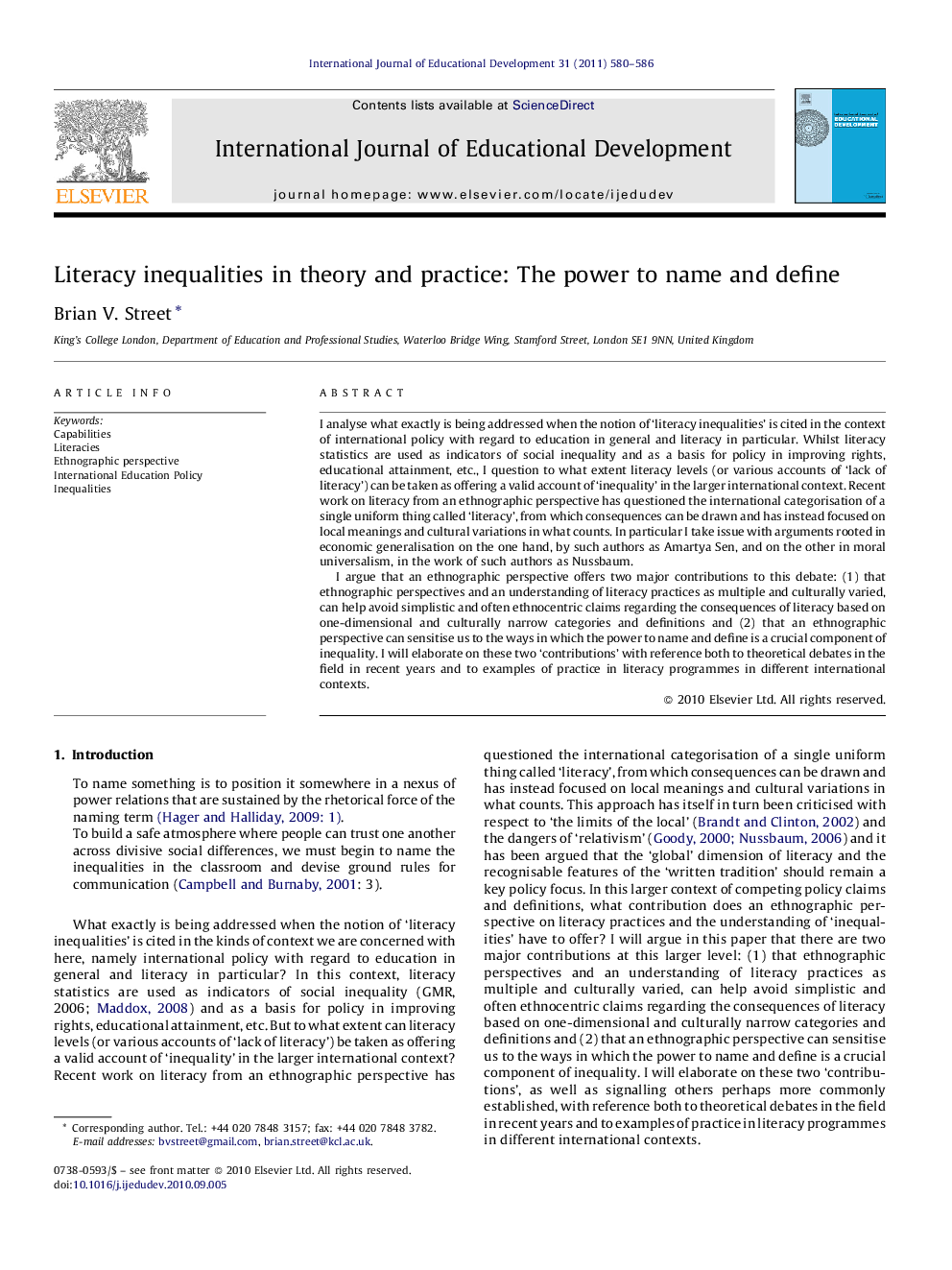| Article ID | Journal | Published Year | Pages | File Type |
|---|---|---|---|---|
| 356362 | International Journal of Educational Development | 2011 | 7 Pages |
I analyse what exactly is being addressed when the notion of ‘literacy inequalities’ is cited in the context of international policy with regard to education in general and literacy in particular. Whilst literacy statistics are used as indicators of social inequality and as a basis for policy in improving rights, educational attainment, etc., I question to what extent literacy levels (or various accounts of ‘lack of literacy’) can be taken as offering a valid account of ‘inequality’ in the larger international context. Recent work on literacy from an ethnographic perspective has questioned the international categorisation of a single uniform thing called ‘literacy’, from which consequences can be drawn and has instead focused on local meanings and cultural variations in what counts. In particular I take issue with arguments rooted in economic generalisation on the one hand, by such authors as Amartya Sen, and on the other in moral universalism, in the work of such authors as Nussbaum.I argue that an ethnographic perspective offers two major contributions to this debate: (1) that ethnographic perspectives and an understanding of literacy practices as multiple and culturally varied, can help avoid simplistic and often ethnocentric claims regarding the consequences of literacy based on one-dimensional and culturally narrow categories and definitions and (2) that an ethnographic perspective can sensitise us to the ways in which the power to name and define is a crucial component of inequality. I will elaborate on these two ‘contributions’ with reference both to theoretical debates in the field in recent years and to examples of practice in literacy programmes in different international contexts.
